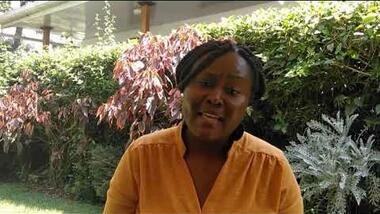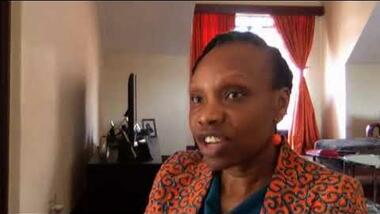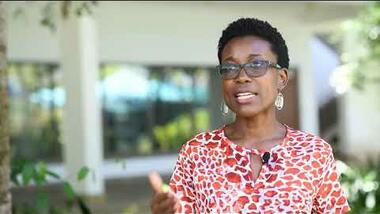
DELTAS – Learning Research Programme
Supporting the Africa-led development of world-class researchers and scientific leaders in Africa.
The Wellcome Trust and the Department for International Development (DFID) ‘Developing Excellence in Leadership, Training and Science (DELTAS)’ initiative aims to improve health in Africa through research driven by the most urgent regional challenges. Eleven DELTAS research programmes are currently funded, each involving a consortium of world-class researchers led by an African research institution.
The institutions are committed to training the next generation of researchers through programmes that support women in science, create opportunities for masters, doctoral and post-doctoral candidates and provide mentorship. By supporting the training of scientists within the continent, DELTAS Africa is seeking to stem the ‘brain drain’ of the best African scientists and promote Africa-led development of world-class research leaders to solve the continent’s most pressing health needs. The scheme will run for five years but fits into a longer-term strategy with a 20-year time horizon.
Centre for Capacity Research Objectives
The Learning Research Programme (LRP), led by the Centre for Capacity Research, will work alongside DELTAS Africa consortia to produce research-based learning about how to train and develop world-class researchers, foster their careers and collaborations and promote research uptake.
A team of LRP researchers will employ a mixed-methods approach to prospectively investigate the collective experience of DELTAS scientific staff as they implement their respective research programs, looking for common barriers and enablers to equitable research careers, research uptake, and effective consortia management. The LRP team will also systematically review the range and quality of professional development opportunities available to African-based researchers.
The LRP team expect to contribute to the success of the DELTAS Africa initiative by providing relevant findings to consortia members as they implement their projects and by advancing current understanding of effective practice in global health research capacity strengthening. The LRP will be led by Centre for Capacity Research in close partnership with the Alliance for Accelerating Excellence in Science in Africa (AESA), the African Institute for Development Policy (AFIDEP), Institute Pasteur and all DELTAS Africa consortia.
One of the earliest outputs from the DELTAS Africa initiative has been the registry of health-related postgraduate training programmes in Sub-Saharan Africa (SSA). This was compiled by the Centre for Capacity Research, in collaboration with the Institute Pasteur Paris, by mapping the number and type of health-related postgraduate training programmes currently provided by the Higher Education Institutes (HEI) in Anglophone and Francophone countries within Sub-Saharan Africa. The aim of the mapping was to provide a comprehensive, up-to-date registry of SSA HEIs providing postgraduate training in health-related courses and a description of the courses themselves; and to identify the relative availability of health-related postgraduate training programmes both across and between Anglophone and Francophone SSA countries. It is hoped that the report and registry will be a useful tool to inform research capacity strengthening initiatives in the SSA region.
Three African scientists are completing PhD projects within the frame of the LRP. These include Millicent Liani’s ‘Examining barriers and enablers to gender-equitable scientific career pathways in African research institutions’ (LSTM, UK); Ms. Violet Murunga’s ‘Exploring the research uptake strategies used by African researchers to promote evidence-informed decision-making’ (LSTM, UK); and Nadia Tagoe’s ‘Understanding how health research capacity strengthening partnerships are established and managed’ (Open University, UK). The three PhD students are joined by Dr. Abiola Aiyenigba who is assisting with a variety of LRP-related projects.
DELTAS Africa Learning Research Programme Dissemination Meeting 2021
Presentation slides and online presentation from the DELTAS Africa Learning Research Programme Dissemination Meeting Tuesday 9th March 2021
Selected learnings and discussions from the DELTAS LRP dissemination meeting 2021
- The DELTAS Africa Learning Research Programme
- Thematic Summary: Equitable Careers
- Thematic Summary: Consortia Management
- LRP BULLETIN Key Findings and Good Practice Examples from CCR December 2020
- LRP BULLETIN Key Findings and Good Practice Examples from CCR November 2020
- LRP BULLETIN Key Findings and Good Practice Examples October 2020
- LRP BULLETIN Key Findings and Good Practice Examples from CCR September 2020
- LRP BULLETIN Key Findings and Good Practice Examples from CCR August 2020
- LRP BULLETIN Key Findings and Good Practice Examples from CCR July 2020
- DELTAS LRP Bulletin June 2020 - Indicators to support effective M&E
- LRP BULLETIN Key Findings and Good Practice Examples from CCR May 2020
- LRP BULLETIN Key Findings and Good Practice Examples from CCR April 2020
- LRP BULLETIN Key Findings and Good Practice Examples from CCR February 2020
- LRP BULLETIN Key Findings and Good Practice Examples from CCR January 2020
- LRP BULLETIN Key Findings and Good Practice Examples from CCR December 2019
- LRP BULLETIN Key Findings and Good Practice Examples from CCR November 2019
- LRP BULLETIN Key Findings and Good Practice Examples from CCR October 2019
- LRP BULLETIN Key Findings and Good Practice Examples from CCR September 2019
- Managing health research capacity strengthening consortia: a systematised review of the published literature
- Registry of health-related postgraduate training programmes in SSA (English)
- DELTAS Africa Learning Research Programme: A list of postgraduate training programmes in Medical and Health Sciences.
- PROGRAMME D’ÉTUDE ET DE RECHERCHE DELTAS AFRICA : LISTE DES FORMATIONS DE TROISIÈME CYCLE EN SCIENCES MÉDICALES ET DE LA SANTÉ
- Selected learnings and discussions from the DELTAS LRP dissemination meeting 2021
Publications
Aiyenigba, Abiola, Abomo, Pierre, Wiltgen-Georgi, Neele, Bates, Imelda and Pulford, Justin (2022) ‘Enabling research capacity strengthening within a consortium context: a qualitative study’ BMJ Global Health 2022;7:e008763.
Liani, Millicent, Nyamongo, Isaac K., Pulford, Justin and Tolhurst, Rachel (2021) 'An intersectional gender analysis of familial and socio-cultural drivers of inequitable scientific career progression of researchers in Sub-Saharan Africa'. Global health research and policy, Vol 6, Issue 30.
Liani, Millicent, Nyamongo, Isaac K., Pulford, Justin and Tolhurst, Rachel (2021) 'Enablers of gender equitable scientific career progression in Sub-Saharan Africa: Insights from the DELTAS Africa Initiative'. AAS Open Research, Vol 4, p. 42. Item availability may be restricted.
Liani, Millicent, Nyamongo, Isaac K., Pulford, Justin and Tolhurst, Rachel (2021) 'Institutional-level drivers of gender-inequitable scientific career progression in sub-Saharan Africa'. Health Research Policy and Systems, Vol 19, Issue 1, p. 117.
Tagoe, Nadia, Molyneux, Sassy, Pulford, Justin, Murunga, Violet and Kinyanjui, Sam (2019) 'Managing health research capacity strengthening consortia: A systematized review of the published literature'. BMJ Global Health, Vol 4, e001318.
Murunga, Violet, Oronje, Rose Ndakala, Bates, Imelda , Tagoe, Nadia and Pulford, Justin (2020) 'Review of published evidence on knowledge translation capacity, practice and support among researchers and research institutions in low- and middle- income countries'. Health Research Policy and Systems, Vol 18, e16.
Liani, Millicent, Nyamongo, Isaac K and Tolhurst, Rachel  (2020) 'Towards an integrated conceptual framework for understanding intersecting gender inequities in academic scientific research career progression in higher education institutions in sub-Saharan Africa'. International Journal of Gender Science and Technology, Vol 12, Issue (2), pp. 262-288.
(2020) 'Towards an integrated conceptual framework for understanding intersecting gender inequities in academic scientific research career progression in higher education institutions in sub-Saharan Africa'. International Journal of Gender Science and Technology, Vol 12, Issue (2), pp. 262-288.



